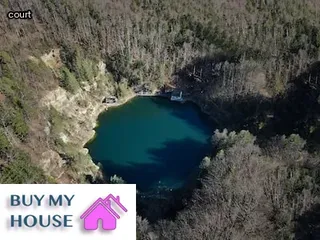In Indiana, probate is the legal process by which a deceased person's estate is distributed to beneficiaries. The process involves filing the will and other appropriate documents with the court, inventorying and appraising the deceased's assets, paying debts and taxes owed by the estate, and distributing any remaining assets according to instructions in the will or state law.
Before a court can begin the distribution process of an estate, it must be determined who can serve as executor of the estate. After that appointment is made, the executor must then open a probate estate with the court.
In order to do this they must provide certain paperwork such as a death certificate, proof that they are authorized to act on behalf of the deceased's estate, an inventory of all assets belonging to the deceased, and an affidavit from anyone who has knowledge about how these assets were acquired. Once opened with the court, all debts owed must be paid before any remaining funds can be divided among beneficiaries according to instructions set forth in either a will or Indiana state law.
Real Estate owned by someone who has passed away also goes through this process which includes determining if there are any liens or mortgages attached to it and making sure that these are paid off before any property can legally be transferred to its intended recipient.

In Indiana, probate is necessary for any assets owned solely in the deceased person's name, regardless of whether or not the asset had a designated beneficiary. Common assets that require probate include bank accounts, securities, real estate, vehicles and tools.
Generally speaking, if an asset has legal title in the decedent's name alone it must go through the probate process. Assets that are jointly-owned with someone else or have named beneficiaries—such as life insurance policies, retirement accounts and payable on death accounts—do not typically require probate because they pass to the designated beneficiary outside of probate court proceedings.
It is important to note that certain items such as jewelry and furniture do not usually require probate but they may be subject to inheritance tax laws which should be taken into consideration when making decisions about who will receive these items. Additionally, there are special rules for real estate in Indiana which must also be followed if applicable.
Overall understanding Indiana Probate and Real Estate Laws can help ensure that assets are properly distributed according to the decedent's wishes after death.
The role of an Executor in Indiana Probate is to ensure that the estate of the decedent is managed properly, so that the wishes of the deceased are carried out and that any debts or taxes associated with the estate are paid. An Executor is responsible for collecting all assets of the deceased, determining their value, paying all creditors and taxes due, filing appropriate probate documents with the court, notifying heirs and beneficiaries, and distributing assets.
In order to fulfill these responsibilities, an Executor must be familiar with Indiana probate laws and real estate laws. It is important to note that being an Executor is a significant responsibility and requires time, energy, knowledge of applicable laws, and good organizational skills.
An individual who serves as an Executor should ensure they understand their duties before accepting this responsibility and obtain competent legal advice if necessary.

In Indiana, the process of understanding probate and real estate laws is important for those who are beneficiaries of an inheritance. Beneficiaries can receive their inheritance in a few different ways depending on the type of asset being inherited.
Generally, any assets such as stocks, bonds, or cash that are held in accounts with financial institutions can be accessed by the beneficiary upon presentation of a death certificate and proof of identity. Real estate and other physical assets that are inherited require more paperwork for transfer to the beneficiary.
In this case, probate must be initiated to assign ownership rights to the beneficiary which typically involves filing documents with the court system. In some cases, beneficiaries may need to obtain a court order to access certain assets or funds from an estate.
It is important for beneficiaries to understand the probate process in order to ensure they get what they are entitled to receive from an inheritance.
In Indiana, filing requirements for a Will are dictated by the state's probate code. The testator (the person making the Will) must sign and date the document in the presence of two witnesses who also sign and date it.
The testator must have sufficient mental capacity to understand what they are writing in their Will and be at least 18 years old. Wills must be signed in front of a notary public or other person authorized to administer oaths in Indiana.
In addition, if real estate is involved, certain documents must be filed with the county recorder’s office such as deeds, mortgages, liens, trust agreements, and other documents required by law. It is important to consult with an attorney or other legal professional familiar with Indiana probate and real estate laws before filing any documents related to your Will.
This will ensure that all documents are filled out correctly and filed properly.

In Indiana, an inventory of assets is required for all probate proceedings. This is to ensure that all assets and debts of the deceased are accounted for in the estate plan.
The executor or administrator of the estate will be responsible for filing a detailed list of the decedent's assets with the court in order to begin the probate process. This listing should include any real estate, vehicles, bank accounts, stocks, bonds, life insurance policies, personal property and other items that have value.
It is important to provide an accurate description and estimated value of each item listed. After this inventory is filed with the court, it becomes part of the public record and can be used by creditors or claimants in making claims against the estate.
If there are any discrepancies between what was listed on the inventory and what was actually owned by the decedent at their passing, it could cause problems down the line when settling final debts or distributing assets to heirs.
In Indiana, an executor of a deceased person's estate can make certain decisions without court approval. Generally, decisions related to assets such as real estate and personal property that are held in the decedent's name only may be made by the executor.
This includes decisions such as transferring title, selling property, and paying debts. However, if the asset is jointly owned with another individual or held in trust, court approval will usually be required before any decision can be made.
Additionally, state law dictates that if an executor wishes to invest or sell assets for over a certain amount of value then the probate judge must first approve the transaction. Therefore it is important for executors to familiarize themselves with the probate laws in their state so they are aware of when court approval is necessary for making decisions relating to an estate.

In Indiana, it is possible to dispute a will during probate proceedings. To do so, an individual must file a complaint in the form of a petition to contest the will in the county where the decedent resided or owned property at the time of death.
The petitioner must provide proof that they have standing to contest the will and that sufficient grounds exist to challenge its validity. Grounds for contesting a will include lack of testamentary capacity, undue influence, fraud, duress, mistake and revocation by the testator prior to death.
If successful, the court may set aside all or part of the will. It is important to note that any person who contests a will must prove their case with clear and convincing evidence since it is presumed valid until proven otherwise.
In addition, if someone contests a will without good reason they may be held liable for attorney fees and other costs incurred by those defending against their claim.
In Indiana, creditors have the right to make a claim against an estate before it is distributed to the beneficiary. Creditors must make their claims within three months of the decedent's death, or they may be barred from doing so.
The types of claims that can be made include outstanding debts, unpaid medical bills, or court-ordered settlements. If there are sufficient assets in the estate, then the creditor will receive payment up to the amount owed.
If there is not enough money to cover all of the creditor's claims, then they will receive a pro-rata share of whatever money remains after all other payments have been made. In cases where there are insufficient funds available to pay off all creditors, any remaining assets must be used to satisfy them in full before any distributions are made to beneficiaries.

Executors of an estate in the state of Indiana are often tasked with the responsibility of distributing assets to beneficiaries, and it is important that they understand all aspects of the law in order to fulfill their duties properly. According to Indiana probate and real estate laws, executors typically have one year from the time of death to complete all asset distributions within the estate.
However, if there are any complex issues involved, such as a dispute among heirs or a challenge to the will, then it may take longer for these matters to be resolved before assets can be distributed. The executor's ability to manage and resolve any disputes quickly and efficiently can greatly affect how long it takes for assets to be distributed under Indian probate and real estate laws.
It is also important for an executor to keep detailed records of all documents related to asset distribution throughout the process and make sure that beneficiaries are informed of their rights so that they can understand what assets they're entitled to receive and when.
In Indiana, mediation is a common practice for resolving disputes over an estate or will. It is a form of alternative dispute resolution (ADR) that allows the parties to come together and attempt to resolve their differences without going to court.
During mediation, a neutral third party, known as a mediator, helps the parties negotiate an agreement that is acceptable to both sides. Mediation has many advantages, including saving time and money, increasing control of the outcome, and avoiding the stress and expense of litigation.
In addition, it allows the parties to maintain privacy by keeping information out of court records and also provides a platform for productive communication between the parties involved in the dispute. Mediators are typically trained professionals who have experience in family law or estate planning law.
They can provide valuable guidance throughout the process, helping each party understand their rights and obligations under Indiana probate and real estate laws. While not all disputes are suitable for mediation, it is often worth considering this option before resorting to litigation as it can help resolve conflicts quickly and efficiently with minimal disruption.

In Indiana, a personal representative is legally required to post surety bond prior to administering an estate. This bond serves as a guarantee that the personal representative will properly execute their duties and fulfill any legal requirements associated with the estate.
The cost of the surety bond depends on the size of the estate and is usually equal to twice the value of the property in question. In addition, it is important to note that if any creditors are listed in a Will, they must be notified within thirty days.
A surety bond can provide additional protection for creditors and heirs by ensuring that all debts are settled before final distribution of assets. Furthermore, should any disputes arise between parties involved in the probate process, such as beneficiaries or executors, then a surety bond can also be used as evidence in court proceedings.
When a person passes away, their assets and debts must go through the process of probate in order for the estate to be settled. In Indiana, there are certain rules and regulations about probate proceedings and real estate laws that govern how debts and taxes are handled during this time.
To begin with, creditors must be paid before any assets can be distributed among beneficiaries. The order of priority regarding which creditors get paid first is determined by Indiana law.
Typically, funeral expenses, medical bills, secured debt such as mortgages or car loans take precedence over unsecured debt such as credit card balances or unpaid bills. Taxes also need to be taken into account when settling an estate in Indiana; this includes both state and federal taxes due from the deceased's final income tax return as well as any inheritance or estate taxes that may be owed.
In some cases, a portion of the real estate owned by the deceased may need to be sold to cover these costs. Once all debts have been addressed and taxes have been paid, remaining assets can then be distributed according to the instructions outlined in the deceased's will or trust document.

When a person passes away, their financial accounts become part of their estate and are subject to Indiana probate laws. During probate proceedings, the court will determine who has access to these accounts.
Heirs and beneficiaries may have access depending on the type of account and other factors. Generally, the executor of the estate will be responsible for providing information to creditors and dealing with any debts that must be paid out of the estate before funds can be distributed to heirs or beneficiaries.
It is important for the executor to understand what accounts are available and how they should be managed in accordance with Indiana state law. The executor should also make sure that any taxes due on these accounts are properly paid before funds are distributed according to the decedent's wishes.
Furthermore, if there are disputes regarding who should have access to these accounts, the court may need to intervene in order to resolve them in a fair manner.
In Indiana, when a person dies without a will, their estate is subject to the laws of intestate succession. This means that the court will determine how to distribute the deceased’s property according to state law.
In cases where a will does exist, but does not specifically list all of the deceased’s property and assets, then any remaining property or assets must go through probate proceedings in order to be distributed among heirs. During this process, the court must determine who has legal rights to the remaining property or assets and they will be divided accordingly.
In some cases, if no heirs can be found or identified then it is possible for the state of Indiana to take possession of the unclaimed property or assets after probate proceedings have been completed. Understanding and navigating Indiana's probate and real estate laws is essential in order to ensure that all assets are properly distributed during an estate's probate proceedings.

Indiana has complex probate and real estate laws that must be followed when closing an estate after a death. Estate planning is important to ensure that the terms of a decedent's wishes are fulfilled as quickly and efficiently as possible.
In Indiana, there is a statutory time limit for closing an estate after death. Generally, the personal representative must distribute assets within two years from the date of death, although certain circumstances may extend this deadline.
The executor or administrator of the estate must also pay any outstanding debts, taxes, or other liabilities before distributing remaining assets to beneficiaries. Real estate may require additional steps and timelines in order to transfer ownership to new owners; for instance, deed transfers typically involve paying transfer fees, recording documents with the county recorder's office, and other administrative tasks that can take several months to complete.
To help ensure that all requirements are met in a timely manner and according to Indiana state law, it is wise to seek legal advice from an experienced attorney who specializes in probate and real estate law.
In Indiana, when a beneficiary challenges the validity of a will, there is a legal process that must be followed in order to determine the legitimacy of the document. Generally speaking, the court must determine if the will was properly executed, if it meets state-specific requirements and if any potential fraud or undue influence was involved in its creation.
The court may also consider whether the testator (creator of the will) had sufficient mental capacity to make this decision and if there were any suspicious circumstances surrounding its execution. If any of these issues are brought into question, witnesses may be called to testify regarding their knowledge of the circumstances leading up to and immediately following the creation of the will.
Ultimately, it is up to a judge to decide whether or not a challenged will is valid under Indiana probate law.

When it comes to understanding Indiana probate and real estate laws, there are certain steps that family members should take when contesting the appointment of an executor or personal representative in Indiana. When making a request for court approval for an estate in Indiana, the family member must first file a petition with the court challenging the executor’s appointment according to the state's statutory requirements.
All legal documents must be filed with the court clerk which includes notice of the hearing. In addition, there are various steps that should be taken when planning on avoiding probate in Indiana such as creating a revocable living trust, transferring property into joint tenancy and establishing payable-on-death accounts.
It is important to understand all of your options before making any decisions about how to manage your estate.
In Indiana, real estate is subject to the state’s probate laws. Generally speaking, if a deceased person owned real estate at the time of their death, it must go through the probate process.
The purpose of the process is to ensure that the decedent's estate is distributed properly and in accordance with their wishes. In order for the real estate to pass out of probate, certain steps must be taken.
The executor of the estate will need to file an inventory of all assets with the court, including any real property. This inventory will also include information about any liens or mortgages secured against the property.
Once all debts have been paid, any remaining real estate can be distributed according to Indiana's intestacy laws or as stated in a valid will. Understanding Indiana's probate and real estate laws can help executors navigate this process smoothly and ensure that all assets are properly distributed according to state law.

When it comes to avoiding probate on a house in Indiana, there are several steps you can take. One of the best ways is to create a Revocable Living Trust, also known as an Inter Vivos Trust or Family Trust.
This type of trust allows for the transfer of real estate assets upon death without going through the probate process. Additionally, you may use a Transfer on Death (TOD) deed or Beneficiary Deed to transfer ownership of your property after death.
This option is typically less expensive than setting up a trust and does not involve court proceedings. You can also consider holding property jointly with another person with rights of survivorship, which means that when one owner dies, their share will be transferred automatically to the other owner without having to go through probate court proceedings.
Finally, it's important to review your estate plan regularly and make sure that all property is properly titled and organized so that it passes according to your wishes if something should happen. Taking these steps can help ensure that your loved ones don't have to go through the lengthy and expensive process of probate when transferring title on real estate in Indiana.
In Indiana, when someone dies, their estate must pass through the probate process in order to be distributed to their heirs. However, not all estates need to go through probate.
In fact, only those estates with a net value of $50,000 or more must go through the probate process. If the deceased person’s estate is worth less than $50,000, it can be handled without going through formal probate proceedings.
This means that any real estate and personal property that has been left behind can be divided among beneficiaries without having to involve the court system. This can help reduce costs and simplify the process for those who have lost a loved one.
A knowledgeable attorney can provide guidance and advice on understanding Indiana’s probate and real estate laws to ensure that an estate is handled properly and efficiently after someone passes away.
In Indiana, the probate process typically takes three to nine months depending on the complexity of the estate. All estates must go through probate, which is a legal process that involves validating a will, gathering and inventorying assets of the estate, paying debts and taxes, and distributing property according to the terms of the will.
Executors must take care to understand all applicable Indiana probate laws in order to ensure that all parties involved are protected throughout the process. This includes understanding both Indiana real estate law and probate law as they relate to inheritance disputes or other issues that may arise.
The executor should also be familiar with common court procedures for filing an estate in Indiana. It's important to note that if there are disagreements among beneficiaries or creditors, this can delay probate proceedings even further.
A: Under Indiana law, a surviving spouse is entitled to a portion of their deceased spouse’s estate, including real estate. Children are also entitled to a portion of the estate. However, the exact amount distributed to each party will depend on the specific facts and circumstances surrounding the probate.
A: In Indiana, the Inheritance Law states that any levies due on property owned by the deceased will be paid from the share of the surviving spouse first, followed by the shares of any surviving children in wedlock.

A: According to Indiana law, if a married couple owns real estate as Tenancy by the Entirety and one spouse passes away, then their surviving spouse will automatically inherit the deceased spouse's interest in the property. However, any grandchild or grandchildren of the deceased may be entitled to a portion of the property depending on how federal estate taxes are assessed.
A: In America, many states offer protections for the confidential information of a deceased person when going through the probate process. In Indiana, all documents pertaining to the estate are kept confidential unless an order from the court is issued for them to be made public. This includes any and all income tax returns that may have been filed by the deceased prior to their passing.
A: Indiana's Privacy Policy provides that any confidential information of the deceased, such as income tax returns, must be kept secure and only disclosed to individuals or entities with a legal right to access it. This ensures that confidential information is not disclosed to unauthorized parties during the probate process.

A: In Indiana, Letters Testamentary are issued by a county court in response to a Petition for Probate. The petition must be filed with the court by an interested party and typically requires that a certified copy of the deceased's death certificate and a detailed account of their assets be included. Once approved, the court will issue Letters Testamentary to the representative of the estate, which will enable them to manage the estate's assets according to Indiana inheritance law.
A: When going through the probate process, it is important to consider the costs associated with filing fees and attorneys' fees as well as taxes due to the state of Indiana or any other creditors. Additionally, depending on the type of property that is being administered, there may be additional expenses such as appraisals or real estate closing costs.
A: In Indiana, an Attorney-Client Relationship creates a fiduciary duty between the attorney and the client. This means that the attorney is obligated to act in the best interests of their client when it comes to probate and real estate laws. The attorney is expected to provide legal advice on all relevant matters, advise on any risks involved, and protect confidential information related to probate and real estate transactions.
A: The Indiana Probate Code defines inheritance rights and how they apply to married couples with children. In this case, if the property was owned by tenancy by the entirety, it passes to the surviving spouse automatically outside of probate. If there are other assets named in the will that were not held as tenancy by the entirety, those may pass through probate proceedings depending on their value and ownership structure.
A: If the gross value of the estate exceeds $11.4 million, then a Federal Estate Tax Return must be filed with the Indiana Department of Revenue.